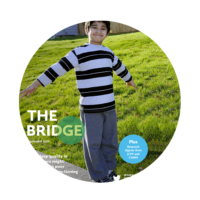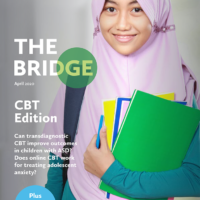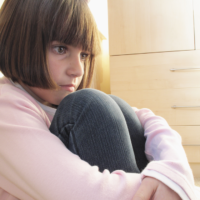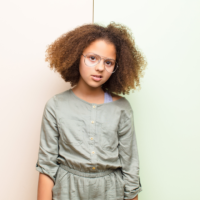CBT
-

Chronic illness may present barriers to engaging in CBT for depression
Between 10 and 20% of teenagers have a chronic illness:1 an ongoing health condition that lasts at least 3 months, and for which a cure is unlikely. Research suggests that teenagers with chronic illnesses are more likely to also have low mood and develop depression than their healthy peers.2
Read more -

September 2020 – The Bridge
The month of September is a challenging time for young people, as they start a new school year. September 2020 will be particularly difficult for many, as they must also deal with the stresses of the coronavirus pandemic and social distancing, as well as the effects of increasing financial pressures on families.
Read more -

Tailoring Support CBT and Mindfulness – Episode 7 ‘Autism a parents guide’ with Dr Ann Ozsivadjian
In this episode, Ann discusses different types of support that can be tailored to children with an autism diagnosis.
Read more -

April 2020 – The Bridge
This edition of The Bridge focuses on CBT, includes ‘Can transdiagnostic CBT improve outcomes in children with ASD?’ and ‘Does online CBT work for treating adolescent anxiety?’
Read more -

CYP-IAPT – Where next?
This article outlines the Children and Young People’s Improving Access to Psychological Therapies project (CYP-IAPT), including where it came from, where we are now, and the challenges we have faced on the way.
Read more -

Can transdiagnostic CBT improve outcomes in children with ASD?
Transdiagnostic interventions apply the same underlying treatment principles across mental disorders, research in relation to ASD
Read more -

CBT and sertraline are effective treatments for paediatric anxiety, but how do they work?
Matti Cervin and colleagues analysed data from the largest RCT for paediatric anxiety disorders to examine how these treatments affect different domains of anxiety
Read more -

Online CBT is ineffective for treating adolescent anxiety
Researchers in Reading, UK have assessed whether self-completed, therapist-supported online cognitive behavioural therapy (CBT) for adolescent anxiety disorders is an effective treatment approach.
Read more -

A thinner cortex predicts a better response to CBT
Research on magnetic resonance imaging (MRI) to identify neural markers that might predict a child’s response to treatment for obsessive-compulsive disorder (OCD).
Read more